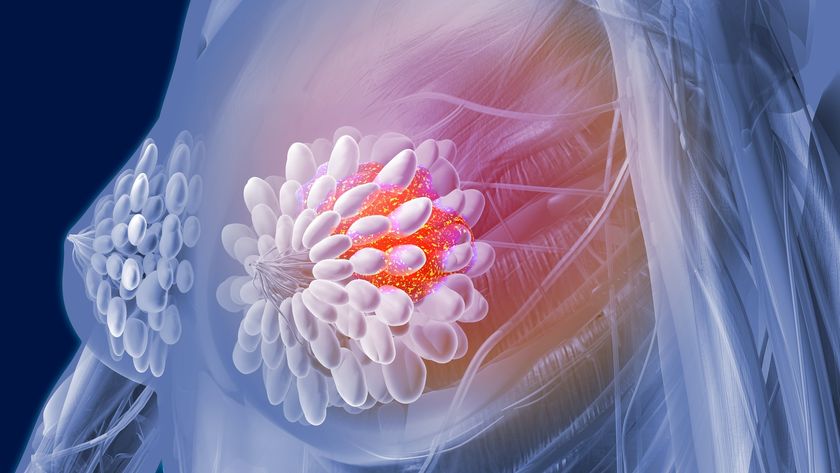Avastin Doesn't Benefit Breast Cancer Patients, Study Confirms

The drug Avastin neither prolongs the lives of breast cancer patients nor improves their quality of life, a new review of several randomized control trials of the drug confirms.
Researchers found that women with metastatic breast cancer who took Avastin along with their chemotherapy treatments survived about two to six weeks longer than those who took a placebo with their chemotherapy — but the difference between the groups could have been due to chance or factors other than the drug, according to the study.
Additionally, women’s responses to surveys assessing their physical well-being and how well they function in their daily lives found no improvement among those taking Avastin.
Avastin (known generically as bevacizumab) received fast-track approval as a treatment for breast cancer from the Food and Drug Administration in 2008, but the agency revoked this approval in November 2011, when follow-up studies showed women taking the drug did not live longer than those not taking it. The new review confirms the results of these studies.
The drug is still approved as a treatment for colon cancer and certain types of lung cancer and brain cancer.
The new review was published July 10 in the journal the Cochrane Database of Systematic Reviews.
Avastin for breast cancer patients
Sign up for the Live Science daily newsletter now
Get the world’s most fascinating discoveries delivered straight to your inbox.
In their review, the researchers assessed seven randomized control trials that included more than 4,000 women with metastatic breast cancer, as well as a cancer registry, and five ongoing trials.
"I think that [Avastin] might be useful in special situations, for example, in patients with a high tumor burden," said study researcher Dorothea Wagner, of the Multidisciplinary Oncology Center in Switzerland. But she emphasized that "there is no benefit from adding Avastin to chemotherapy in the overall population."
The drug is believed to work by limiting the blood supply that brings oxygen to a tumor. However, it also appears to fuel the growth of cancer stem cells, which rebound to cause the cancer stem cell growth to quickly overpower any benefit the tumor reduction brought.
The study showed that Avastin "prolongs the time to a tumor progression, but does not increase survival time,” said Dr. Max Wicha, director of the University of Michigan’s Comprehensive Cancer Center, who was not involved in the study.
Furthermore, the side effects associated with the drug, which include hypertension, bleeding and perforations (small holes) in the intestines, were severe enough that overall, patients reported no improvement in their quality of life while taking the drug, Wicha said.
Wicha added that he thinks it likely that Avastin will prove to be an important part of cancer treatment, but that it will have to be used in conjunction with another medication that limits the growth of cancer stem cells.
Side effects
The side effects associated with Avastin may be difficult to assess, however, because the drug is often given in conjunction with chemotherapy. Patients "don’t really know which side effect to attribute to which treatment," said Dr. David Miles, a clinical cancer physician at Mount Vernon Hospital in England, and a researcher on one of the randomized control trials reviewed in the study.
In Miles’ study, 10 percent of patients withdrew from Avastin treatment because of the side effects, but 10 percent of participants also withdrew from the placebo treatment due to side effects, he said.
If a drug neither prolongs life in breast cancer patients, nor improves quality of life, there is no reason why it should be prescribed for them, Wicha said, though he acknowledged that more research should be done to assess whether Avastin might help certain subgroups of women.
The new study noted that patients who had been treated with chemotherapy saw a greater benefit from treatment with Avastin.
Miles, who practices medicine in the United Kingdom where Avastin is still approved as a breast cancer treatment, said he feels decisions about when to use the drug should "come down to the clinician and patient, while the jury is out."
Both Miles and Wicha said that the new review was one of the largest and most comprehensive analyses to date of Avastin use in breast cancer treatment.
Pass it on: The breast cancer drug Avastin neither prolongs survival nor improves quality of life, but there may still be potential for it to become part of breast cancer treatment.
Follow MyHealthNewsDaily on Twitter @MyHealth_MHND. Find us on Facebook and Google+.













